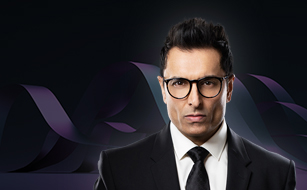Societe Generale Private Banking Outsources Research
In October last year, the 147 year-old Societe Generale Private Bank (SGPB) broke with tradition and outsourced a significant part of its research function to Copal Partners. Until then, the bank’s internal team of 12 dedicated researchers globally was solely responsible for generating research that would meet clients’ needs across Europe, US and Asia.
As SGPB’s client base grew, so did its needs and the bank wanted to make sure its research capabilities would keep pace, especially in emerging markets such as Eastern Europe, India and Latin America. Partnering with a research company that already had a strong foothold in these markets made strategic sense.
Narrowing down to Copal as a research partner from a long list of potential candidates was a complex task in itself, but the heads of research at the bank soon found out that the toughest part of their job only became apparent after the partnership agreement was signed.
For the next three months, Edouard Camblain, global head of research for private banking, and Matthew Choi, regional head of research worked with senior members of SGPB’s global team to weave the bank’s internal ideology and methodology seamlessly into the processes Copal would follow when conducting the outsourced research for the bank.
A total of 13 analysts were chosen from Copal to work exclusively with SGPB and they were inducted into guidelines and procedures as well as the exact templates followed by the bank. The aim was to combine best practices, macro-economic ideologies and the work ethic at the bank so that the external team of researchers and the bank’s own team would function as one unified body. This included enhancing the writing style at Copal so that it presented information in the simple and clear style to which SGPB’s wealthy clients were accustomed.
The rewards of the initial hard work are apparent and tangible to Camblain who says, “The team of analysts at Copal is simply an extension of our internal team and a lot of hard work has gone into synergizing the two.”
“We treat the team at Copal as our real partners and not as providers,” adds Choi.
So confident is the private bank of the combined strength of its in-house and outsourced research team that it hosted a research road show in Dubai end of last year. It is also publishing co-branded research reports and recommendations to private banking clients globally on a periodic basis.
The integration of the two teams has been so seamless that members from the Copal as likely to interface with a client as a member from the internal research team.
“Cost is not the main criteria in the decision behind outsourcing but the ability to quickly provide research to our top clients especially in emerging markets where our foothold is not that strong. But more than simply outsourcing, the real work has gone into synergizing Copal with our team so that we are partners in the true sense,” adds Camblain.
The bank has very quickly achieved this objective of an enhanced research product. “Let’s talk equities” is a new initiative by Societe Generale where analysts make a monthly presentation to clients, relationship managers and investment managers on the internet.Clearly, outsourcing research has allowed Societe Generale to reap the strengths of the partnership with Copal without letting the pitfalls of outsourcing deterring the success of the arrangement.
However, a number of banks feel differently about outsourcing their research function. They view research as a critical in-house function which is an important service differentiator and goes a long way in building the brand of the bank.
These private banks point to the benefits of in-house research and view outsourcing as diluting the quality of the bank’s integrated service offering. They also argue that outsourced reports have a ‘crowd factor.’ High net worth clients want to read specialized reports that are precise and written in a particular ‘house’ style. Outsourced reports, they argue, tend to provide excess information without filtering the necessary core analysis clients require.
“Any bank claiming to be a ‘money manager’ needs to have in-house research,” affirms Didier Duret, chief investment officer at ABN AMRO private banking, that has an in-house research team of around 40 people globally and covers the full spectrum of research from equity to debt, commodities, private equity, real estate, thematic coverage and hedge funds.
In-house research is perceived to have three clear advantages – consistency, proximity and versatility. Indeed, Duret points out that there is an intangible value of bringing in-house specialists to meetings. “If need be, relationship managers can even take analysts for client meetings and presentations,” he explains. “The versatility of this structure provides invisible benefits, which cannot be matched by outsourcing.”





